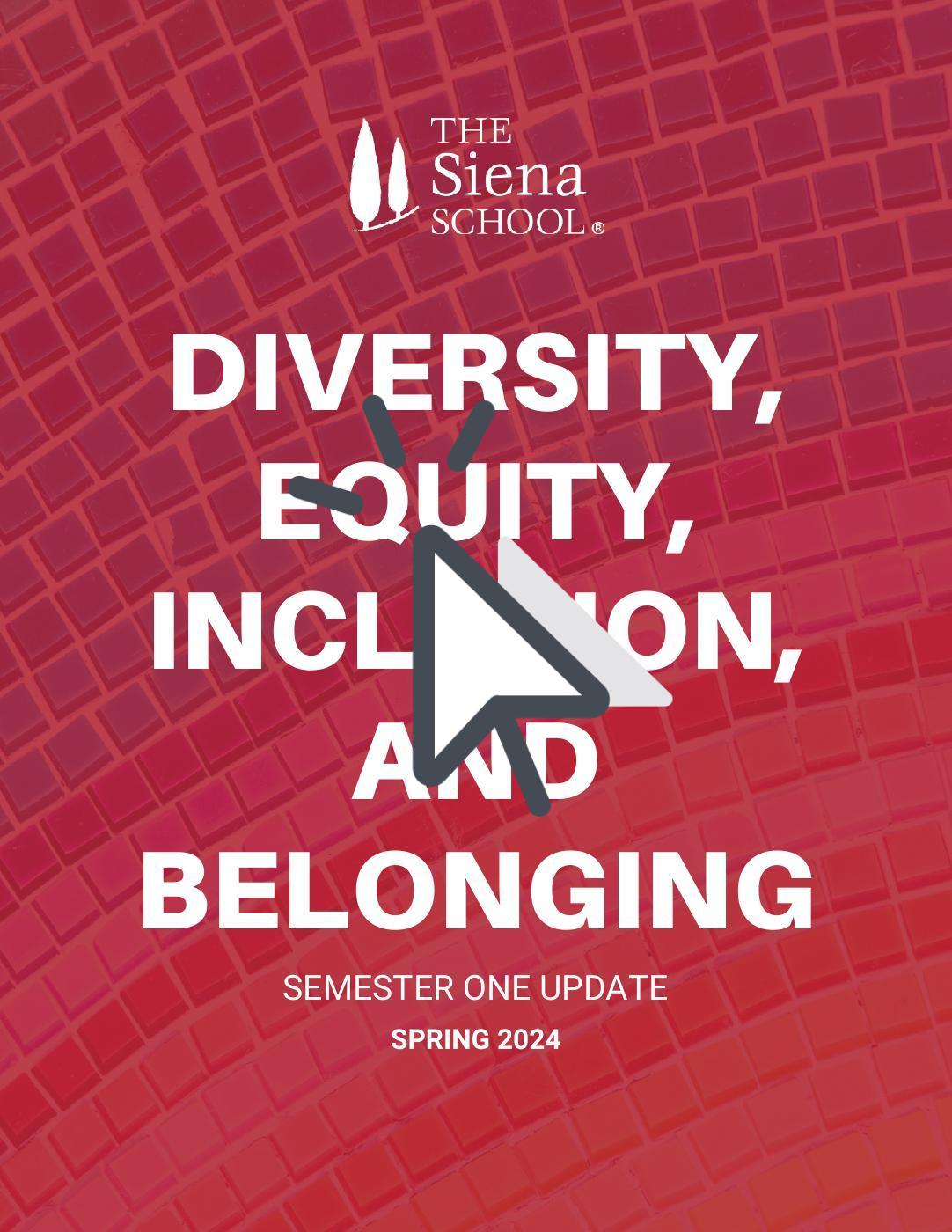Empowering students with language-based learning differences

Siena Blog



The Siena School Blog
Discover, Learn, Celebrate, and Empower
Welcome to Siena's blog, your source for helpful, cutting-edge resources tailored to teachers, parents, and other advocates in the learning differences community. We are dedicated to providing a wealth of curated knowledge spanning various topics, ranging from dyslexia advocacy and awareness to classroom teaching strategies, heritage month profiles, and social and emotional health.
Colleges Want Strong Applicants: What are They Looking For?

As high school students adapt their admissions profiles to what colleges are looking for in 21st century learners, it’s increasingly important for them to adopt appropriate work habits now. A recent piece in The Harvard Gazette examines some key traits—such as “self-awareness, curiosity, diligence, perspective-taking, social awareness, and collaborative skills”—that admissions offices are privileging over grades and test scores. How can high school start developing habits that prepare them for college?
Developing Skills and Independence for College
Schools that integrate college and career prep into their high school curricula can help students develop important organization, executive functioning, and independent work skills. The Siena School helps prepare high school students for college work habits through its internship program. Siena’s internship program enables students to choose a new internship annually to explore various career interests, allowing for direct experience to develop these important 21st-century skills that colleges look for, among them:
- Collaboration and acting on feedback
- Communication and professionalism
- Time management
- Self-advocacy and independence
- Problem-solving
Internships enhance high school students’ college and career readiness by giving them hands-on experience in various job roles and tasks. Siena also teaches students to self-advocate and use all available tools and strategies, so high school students have plenty of practice advocating for themselves, prior to earning their independence in college.
A few key parts of self-advocacy are self-awareness, resiliency, and diligence, skills that can carry students through high school and college. Watch this recent Siena graduate share some of his experiences in writing at the collegiate level:
Using tools and strategies such as paragraph planners and highlighting key information when reading aided in his successful transition to college.
“College admission professionals recognize the value of empathy, resilience, honesty, and other attributes in assessing applicants and shaping their classes”
A key part of high school at Siena is teaching students to find the balance between homework, independence, leadership, college counseling, internships, service learning, electives, and athletics. Students will have to balance multiple responsibilities in college independently. Important executive functioning skills need to be honed and practiced to deal with deadlines, setting office hours, problem solving, self-management, and focus. It is best to practice exploring strategies that will work in high school to then carry to the next level.
“More colleges are moving away from accepting students who did the most ‘stuff’ to looking for those who focus their energy in specific areas that they’re passionate about.”
Siena’s senior independent project is designed to simulate the experiences that students will face after graduation. They research a topic that they are passionate about and then they write drafts of a final paper. This allows teachers to provide feedback on students' writing and see how well they use the tools and strategies (color-coded planners, editing checklists, etc.) they have learned at Siena. Students practice creativity, brainstorming, and self-reflection during the process, meeting deadlines, attending office hours, and calendar planning.
The main goal of the reflection is to clarify students’ strengths and weaknesses in preparation for work and school while they still have time to practice and gain support and feedback from teachers. It is also a chance for students to build their learning around their own interests and incorporate their strengths and creativity into their work. For some, it has led to the creation of side businesses and/or the development of lifelong hobbies and creative projects.
“What you do outside the classroom reveals a lot about you. Admission officers want to know what you’ve learned and how you’ve grown from participating in these activities.”
A decade or more ago, accumulating tasks, extracurriculars, or accomplishments for a college application might have been enough to be accepted. Now, though, admissions offices are valuing both character and meaningful extracurriculars for new applicants. Have students shown leadership potential and initiative? A willingness to take risks? A sense of social responsibility and commitment to service?
Siena’s curricular and extracurricular programs highlight character development, helping others, peer leadership, and more. In the Peer Mediator program, high school students—after teacher recommendation and training to develop active listening and problem-solving skills—meet with other students who have an individual problem and help them brainstorm solutions and ultimately a solution that works for all parties involved. As well, in the Siena Ambassador program high school students volunteer to mentor new students and help these students transition to the Siena community.
Admissions and campus visits continue to adapt to 21st century learning styles and needs. For more on how high school students can enhance their college readiness now, see The Siena School blog for posts about virtual college tours and tips for writing in high school and in college.
Learn more about tools and strategies that Siena employs to address executive functioning, organization, and independent work for students at the Twice Exceptional (2e) educators’ conference on January 25, 2021.
Resources for College Admissions in 2020-2021
- U.S. News and World Report, “What Colleges Look For” (2020)
- National Association for College Admission Counseling, “Colleges Consider Student Character Traits in Admissions Decisions” (2020)
- College Choice, “What Colleges are Looking For in a Successful Applicant” (2020)
- Harvard Gazette, “Will Coronavirus Change College Admissions?” (2020)
- CNBC, “315 College Deans Detail What They Are Looking For from Applicants during the Pandemic” (2020)
- College Board, “Extracurriculars Matter — To You and To Colleges” and “Character Counts: What Are Colleges Looking For?”
- College Board, “Applying 101”
- Times Higher Education, “Top 7 Qualities Universities Look for in Student Applicants” (2017)
Virtual College Tours and Other Resources

While distance learning is the new normal in K–12 education, college-bound high schoolers have an additional task: college research and tours. Seniors might be wondering how they may tour and then choose a college for next year without actually visiting campus.
Many colleges are closed as a result of COVID-19 and are canceling admissions tours and other events. College visits and open houses are still happening, though, and resources continue to become available to learn about campus life and academics virtually. Here are a few ways to do so:
 1. Understand how much the admissions process has changed as a result of COVID-19.
1. Understand how much the admissions process has changed as a result of COVID-19.
Usually, May 1st is the deadline for seniors to decide which college they'll attend. But, with COVID-19 making it impossible for seniors to attend accepted students’ days or overnight visits, many colleges are extending their deadline to enroll until June 1st. Students may reach out to the colleges they’ve been accepted to for more information. Here’s a list by ACCEPT of many colleges that have adopted the new deadline.
Seniors can make the most of this postponement by reaching out to colleges for more information as they weigh their options. Forbes has published “The COVID College Choice: How to Pick a College During a Global Pandemic”; it offers some helpful tips and a useful acronym to help college-bound students and their families keep things in perspective.
And, although the ACT and SAT have canceled their April and May test dates, students may still register to take the June test. Some colleges are considering going test-optional for the entire class of 2021 in light of COVID-19; check the websites of any colleges you’re interested in for their policies.
 2. Take virtual tours of the colleges you’re interested in.
2. Take virtual tours of the colleges you’re interested in.
Many colleges offer remote 360° tours and virtual reality experiences of their campuses, as well as basic information about the schools.
Rebecca Chabrow, director of enrollment management at Gratz College, has assembled a detailed list of over 900 colleges that offer some kind of virtual tour; there’s also data on location and student population.
 3. Reach out by phone or email to admissions representatives. It’s a good idea to prepare a list of questions in advance.
3. Reach out by phone or email to admissions representatives. It’s a good idea to prepare a list of questions in advance.
Katherine Daley-Bailey, an advisor in the College of Arts & Sciences at the University of Georgia, suggests a few questions based on those she’s received at orientations and other open-house events:
- What resources does the school have on setting expectations and time management? What can students start doing now to prepare themselves for college life? (See this example from Southern Methodist University.)
- What scholarships and other opportunities are available for tuition reduction?
- Do freshmen have to live in a dorm in their first year? And, can freshmen have a car on campus?
- How can students learn about the courses offered to freshmen? How does the registration process work?
- What does a typical workload, average credit hour disbursement, and first semester look like?
This is also a good time to ask prospective colleges about what kinds of learning support they offer students: e.g., the writing center, assistive technology, tutoring services, and workshops on study skills and library research. See here for some of the college-prep resources The Siena School offers its students.
 4. Ask the admissions office to connect you with students at their school who share your interests. Get in contact with alumni.
4. Ask the admissions office to connect you with students at their school who share your interests. Get in contact with alumni.
Online communication and networking have become essential. To replicate the typical follow-up experience after a college tour, students could reach out to admissions and student affairs offices to get directed to relevant online groups or other resources.
Students could also schedule a call or video conference with any alumni that their school’s college counselor puts them in touch with.
Doing some research and outreach now is good training for what students will have to do at college: taking initiative, self-advocating, and managing their own time without direct guidance from teachers or advisors. Managing some of the college research process virtually can help students make informed choices about where they’ll attend in the fall; it can also start building an online support network to aid the transition.

